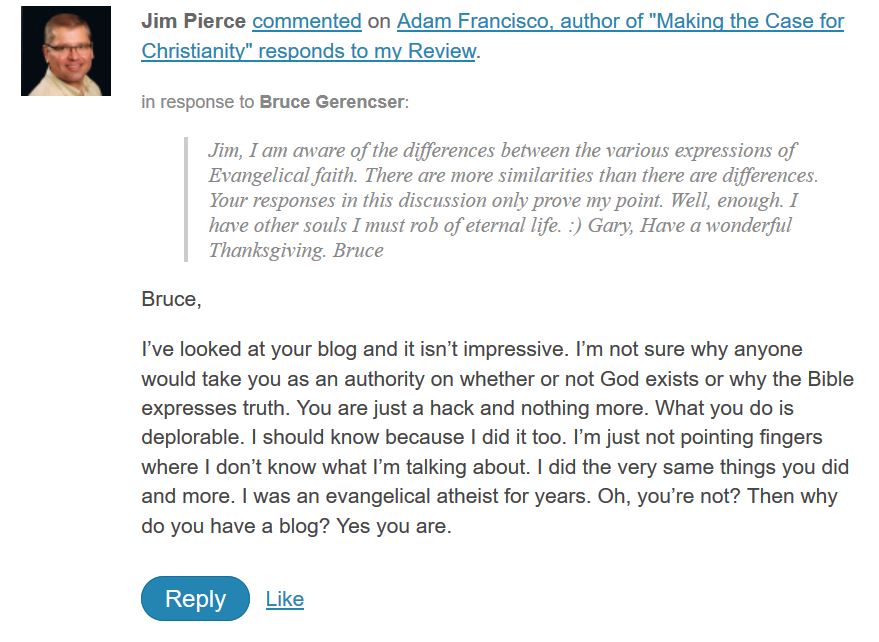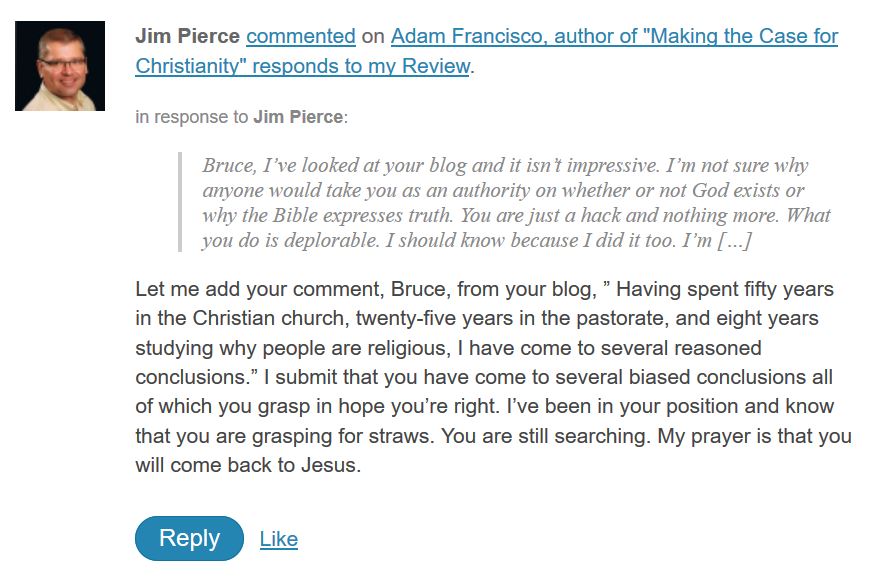
In a post titled, Does Protestantism Ultimately Lead to Atheism? T.J. Lang asserts that Protestantism leads to immoral, Satanic atheism:
The Lutheran Church he founded remained the state Church of Sweden until 2000 and was the only church allowed in the country until the middle of the 19th century. Even today, it is funded by and considered a “department” of the Swedish secular government. In fact, Catholicism was illegal in Sweden for more than a quarter of a century. At times, the death penalty was invoked for the “crime” of being or becoming Catholic. It was only dropped in 1873.
Roughly 2 percent of the population of Sweden are Catholics and Orthodox, and they are almost entirely immigrants. Given that Sweden has been influenced by only the Lutheran faith for almost 500 years, the state of Christianity in Sweden should be an indication of whether Protestantism, or more specifically, the first version of Protestantism – Lutheranism — has had a positive impact on Christianity.
Statistics regarding the state of the Christian church in Sweden are, to say the least, shocking. Today, 61 percent of Swedes officially belong to the Lutheran Church, down from 95 percent in 1972. Both statistics are misleadingly high, in part because anyone born before the year 2000 was automatically enrolled in the state church regardless of religious belief or practice. For the vast majority, membership is merely a formality and doesn’t mean much in their lives. In the 1990s, 15 percent of Swedes claimed a belief in a personal God and only 19 percent believed in an afterlife.
According to various studies, between 46–85 percent of Swedes now consider themselves “irreligious,” meaning that in their lives there is an “absence of religion, indifference to religion or hostility to religion.” According to a Zuckerman poll, the same figures for a few “Catholic countries” are as follows: Portugal: 4–9 percent, Greece (Eastern Orthodox): 16 percent, Italy: 6–15 percent. These statistics are contrasted with that of Germany, the home of Luther’s Reformation, at 41–49 percent, and the United States at 3–9 percent.
The Living Church, an independent Anglican organization, reports that only about 400,000 of the 6.6 million Swedes attend church on a monthly basis (6 percent), and only 15 percent of the members of the church say they believe in Jesus Christ. It is not insignificant that an equal number of Swedes are stated atheists: “Of the 3,384 churches in Sweden only 500 or so are used, at most, once a month.”
Fifty-five percent of children born in Sweden today are born out of wedlock as compared to 9 percent in Greece, an Eastern Orthodox country, which was never really infected with Protestantism or influenced by “salvation by faith alone.” Of course, this has a tremendous impact on the percentage of children reared in single-parent families. Twenty-two percent of children in Sweden are in single-parent situations, whereas in Italy, it’s only 10 percent.
According to an article in the Weekly Standard, “A majority of children in Sweden and Norway are born out of wedlock. … Not coincidentally, these countries have had something close to full gay marriage for a decade or more. Same-sex marriage has locked in and reinforced an existing Scandinavian trend toward the separation of marriage and parenthood.”
Of course, Sweden isn’t the only country that has been influenced by Protestantism or more specifically, the original Protestantism — Lutheranism. As such, it would be instructive to determine how Christianity in general and Christian moral values are faring in those countries.
Obviously, these statistics show that the greater the influence of Protestantism, the weaker the belief in God and the less the importance of religion in general. Other country by country statistics on issues such as abortion rates, marriage rates, cohabitation rates and divorce rates are all pretty shocking in the countries the are strongly Protestant. Obviously, Satan is having his greatest successes in the predominantly Protestant countries, and in fact, specifically in the Lutheran countries.
In a video transcript titled, Donald Trump and Atheists, Michael Voris had this to say:
The entire American electorate is in massive flux and about to undergo the most significant change in the country’s history.
If current trends hold or even accelerate by just a little, this may very well be the last election where a majority of voters will be white Christians — if not this election, certainly 2020. This is due to two large factors: the decline of the Protestant majority and the rise of the religiously unaffiliated, also known as “nones.”
The nones, at least many of them, while claiming to be “spiritual” are functionally and in practice atheists. They are a-theist not so much in their cores but in their lives, where it really matters after all. We have said at various times that Protestantism leads to atheism, and here are reports back from the political front lines proving the truth of that statement.
Up until about the past 10 years, the bulk of the decline among white Protestants was largely among more liberal mainline Protestants, like Methodists, Episcopalians or Presbyterians. Since the re-election of Ronald Reagan in 1988, their numbers have been cut nearly in half to just 14 percent of the overall population.
But more surprising, in the last 10 years, there has also been a notable decline among the more conservative branch of white Protestantism —Evangelicals. Since the end of Ronald Reagan’s last term in 1988, they have dropped from 22 percent to just 17 percent. Add both those Protestant camps together and you get just 31 percent of the electorate.
What’s driving the decline over the past generation? The rise of the younger generation, 34 percent of which identify as unbelievers — not affiliated with any religious body at all.
It doesn’t take a genius to look at the numbers here. A larger percentage of millennials — 34 percent — are unaffiliated with any religion than the the overall percentage of white Protestants — 31 percent — relative to the population. All this volatile mixture needs is a little more time, perhaps one more election cycle, before white Protestant voters lose their majority status. And then, by the time, today’s millennials are in their forties, they will be the majority — and you need to stop and think about that for a moment.
What is looming just over the horizon, politically and culturally speaking, is a nation where Christians are the minority, and cultural atheists are the majority. And this is owing precisely to the Protestant ethos of the rule of the exaltation of the individual. All of Protestantism is built on this principle — the principle of individual interpretation of Scripture, of individual personal relationship with Jesus, unmediated by the Church.
Protestantism eventually gives way to atheism, because philosophically, it is atheism. What, after all, is atheism? It is a-theism, no God. What does Protestantism, with its me-centered theology, produce? That you become your own God. You determine your morality. You determine the meaning of Scripture. You determine your own theology. There is no longer room for God, because the individual assumes the throne — kind of the working definition of atheism.
….
Both of these excerpts are from the Church Militant website




